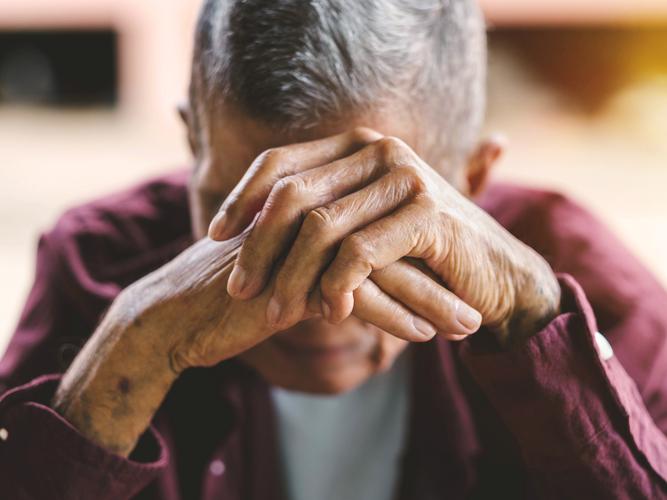CHICAGO, IL – If you suspect someone you love may be suffering from elder abuse in their nursing home facility, it’s important to ask questions. The following questions were adapted from the Elder Abuse Suspicion Index (EASI). EASI is a set of questions that doctors may ask if they think an elderly patient is being abused. You can use these assessment questions to check on your loved one’s well-being and begin to take action from there.
- Has anyone limited your daily activities?
If someone is limiting a seniors daily activities, they may be doing so in order to take advantage of them, which is known as “willful deprivation.” Willful deprivation can have a wide range of negative consequences.
Through willful deprivation, seniors may not receive food and water, proper medications, glasses or hearing aids, or medical care. According to the National Institute of Aging (NIA), this is a form of emotional abuse.
If a senior tells you someone has been restricting or changing their daily activities, it’s important to find out who. Many times the person who is abusing a senior is someone close to them such as a family member, at-home caregiver, or nursing home staff member.
- Has someone talked to you in a threatening way?
Verbal harassment can cause elders to be scared, agitated, and withdrawn; furthermore, can lead to mental health problems such as anxiety and/or depression.
An abuser may use threats to prevent a senior from speaking to loved ones, nursing home staff, and law enforcement officials. This type of intimidation can make it much harder for seniors to seek the help that they need.
- Has someone forced you to give them money or sign strange papers?
If someone has forced an elder to give them money or sign papers such as legal documents and checks, it can be a sign of financial abuse.
Financial abuse can drain seniors of their life savings, leaving them unable to afford basic living expenses. It can also cause seniors to suffer from distrust, depression, and feelings of worthlessness.
Unfortunately, some cases of financial abuse may not come to light until months or years after because it can be hard to detect. Some seniors with mental or physical health issues may not be able to properly track their finances. For example, a former attorney store nearly $1 million dollars from a nursing home resident who suffered from dementia over a seven-year period.
- Has anyone touched you without your consent or hit you?
If a senior is being inappropriately touched or hit, these physical interactions could be signs of sexual or physical abuse. Other signs of physical abuse can include broken bones or sprains, bruises, scratches, or loss of hair or teeth.
Even if a loved one has not been physically injured, any unwanted touching in inappropriate areas is considered sexual abuse and can traumatize them.
It’s a good idea to take a less direct approach when asking about these sensitive questions. You may want to ask your loved one to explain how they got an injury on their body if one is visible.
Other Elder Abuse Assessment Questions
A senior may not answer elder abuse assessment questions honestly out of fear that their abuser will find out and will hurt them. There are questions you can ask yourself if you think your loved one is being abused.
Ask yourself:
- Does the senior seem withdrawn or in a bad mood?
- Are they not making eye contact with you or others?
- Are they suffering from poor hygiene?
- Are they improperly clothed?
- Do they have strange and/or unexplainable cuts, bruises, or other injuries?
- Are they not regularly taking their medication?
Elder Abuse Assessment: Next Steps
If you believe your loved one is being abused or neglected, it’s important to remove them from that environment as soon as possible. From there, you should take them to a hospital to seek treatment, if necessary. It’s also important to report nursing home abuse or elder abuse to the police or Adult Protective Services (APS). Finally, it’s important to explore legal options to receive compensation for their injuries, medical treatment, and other expenses.
The Dinizulu Law Group, Ltd. has extensive knowledge and resources in this area of the law and provide highly personalized service by working closely with clients throughout every step of the process. Our attorneys have represented hundreds of individuals and families in making claims against abusive nursing home facilities and have helped them receive the compensation they deserve. Please call our office to schedule a free consultation at (312) 384-1920 or visit our website for more information.



